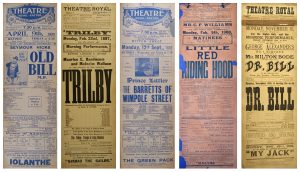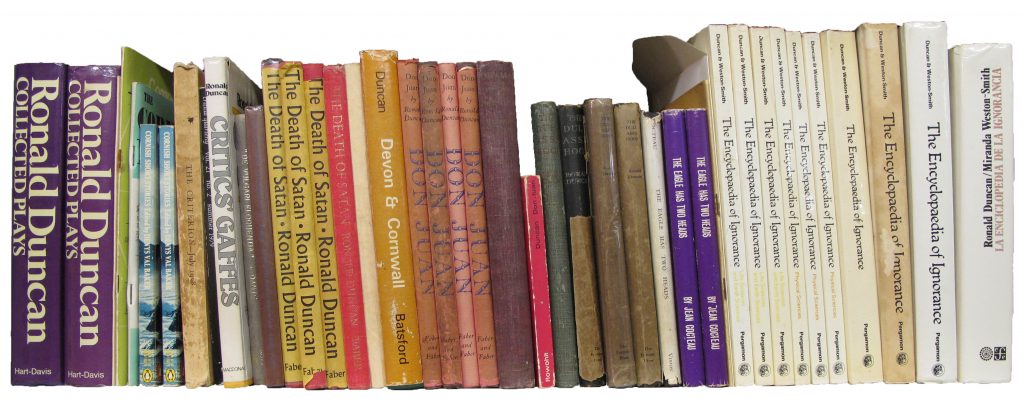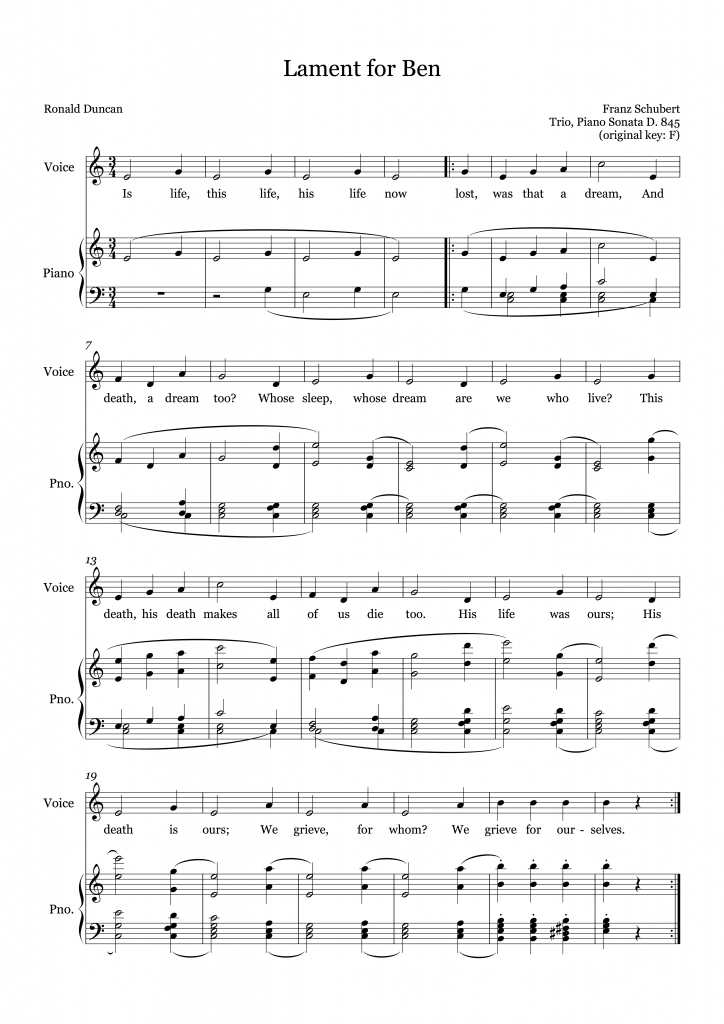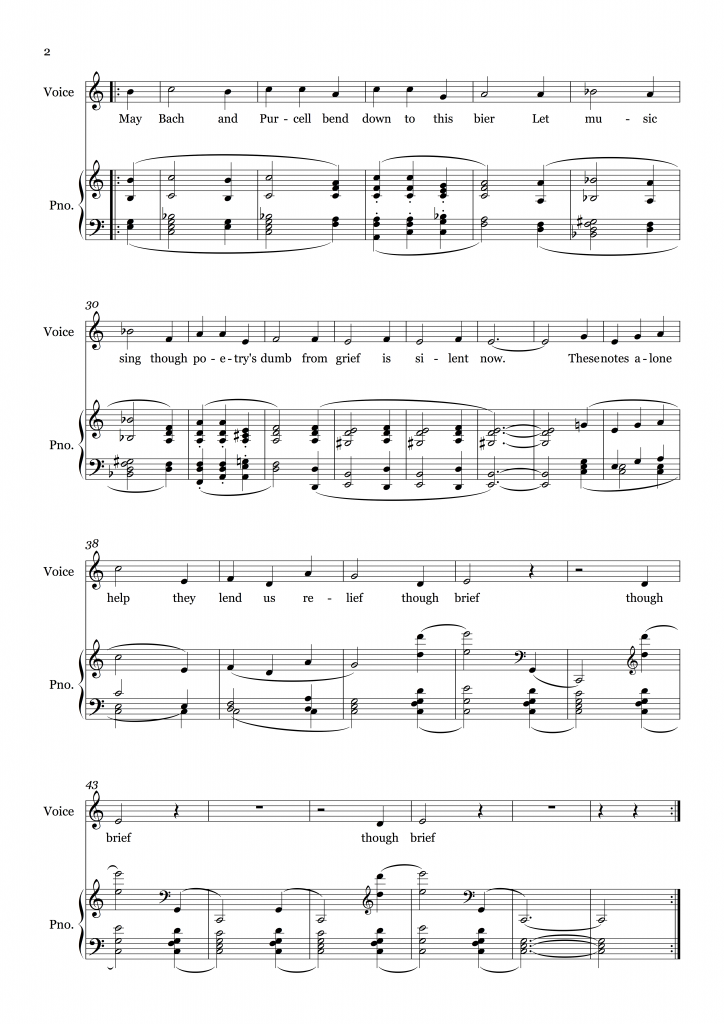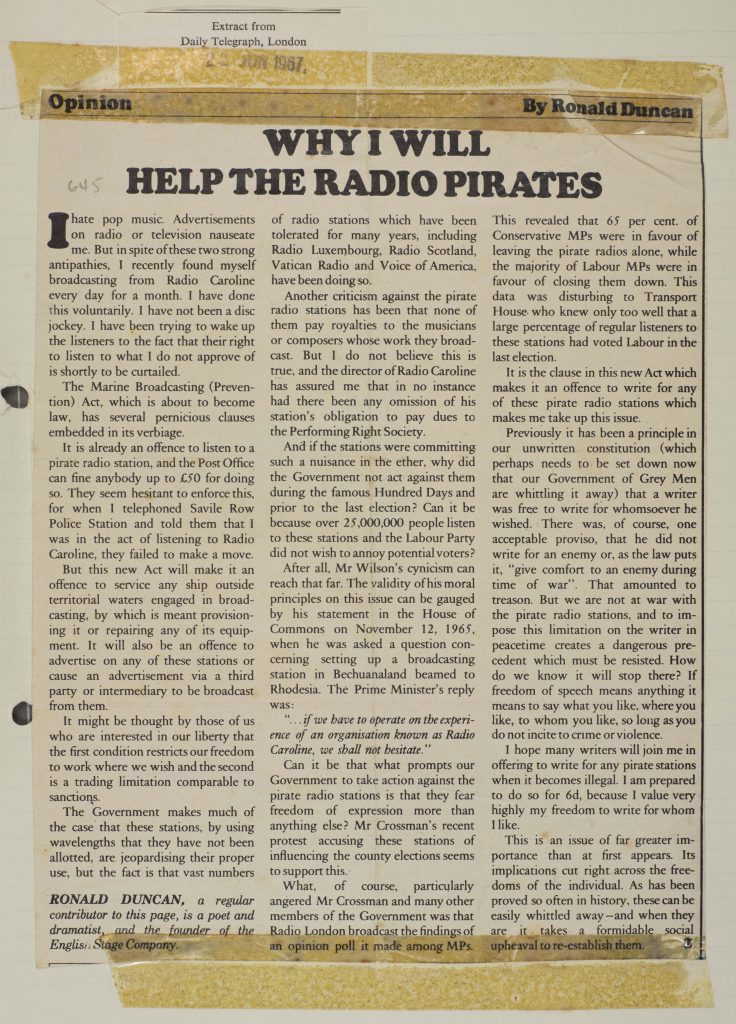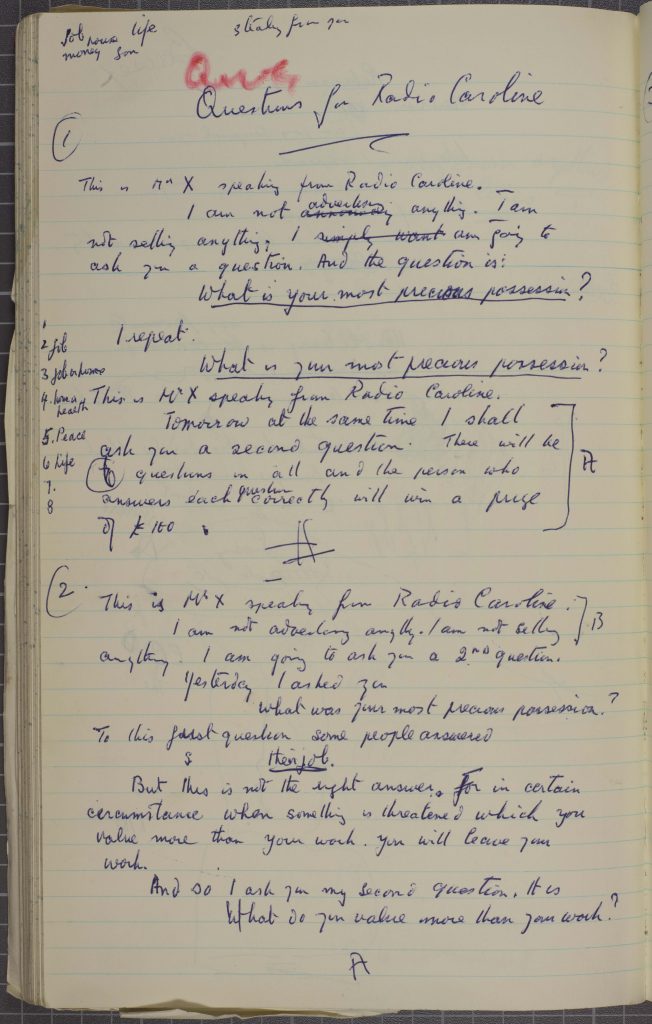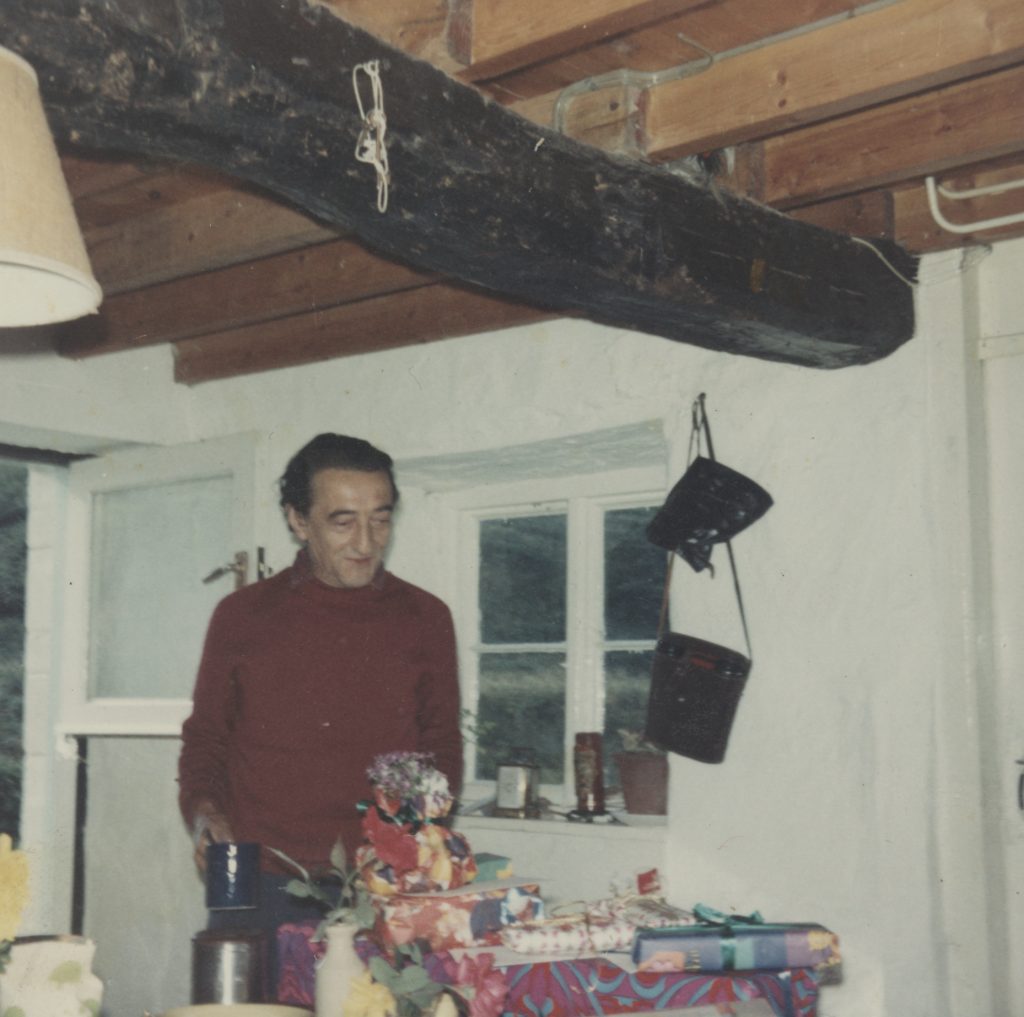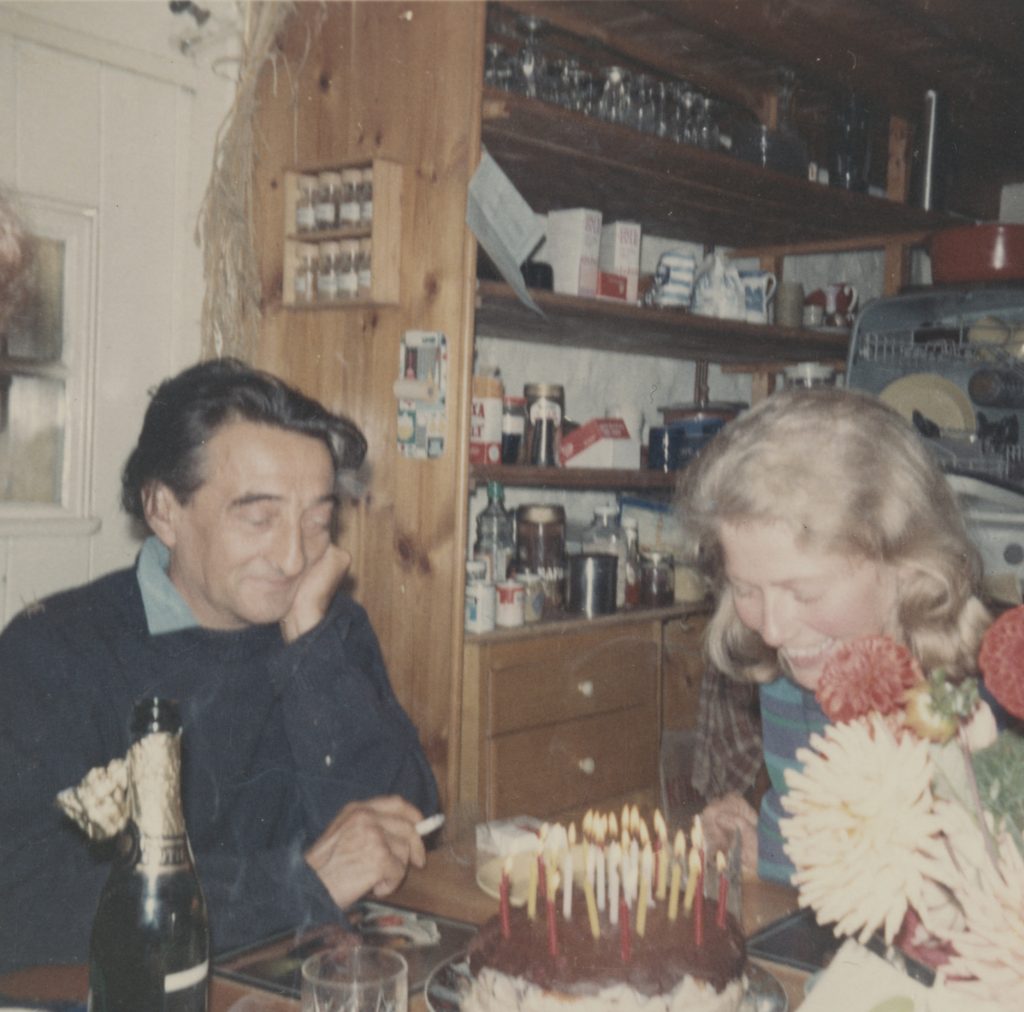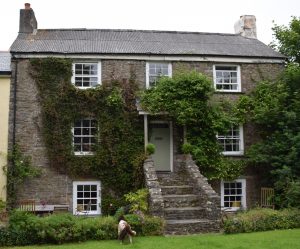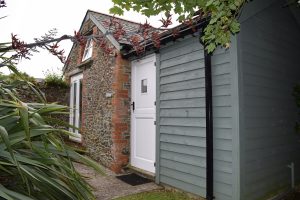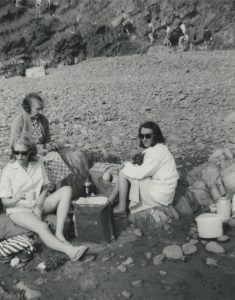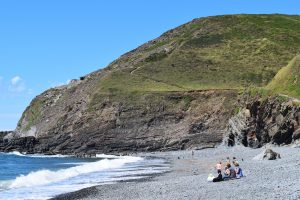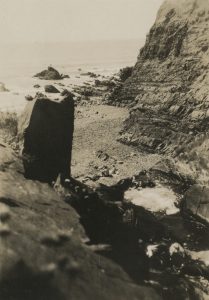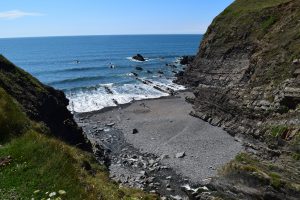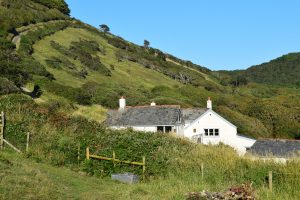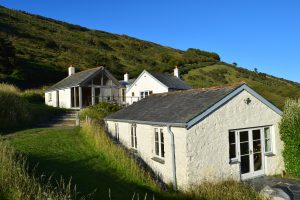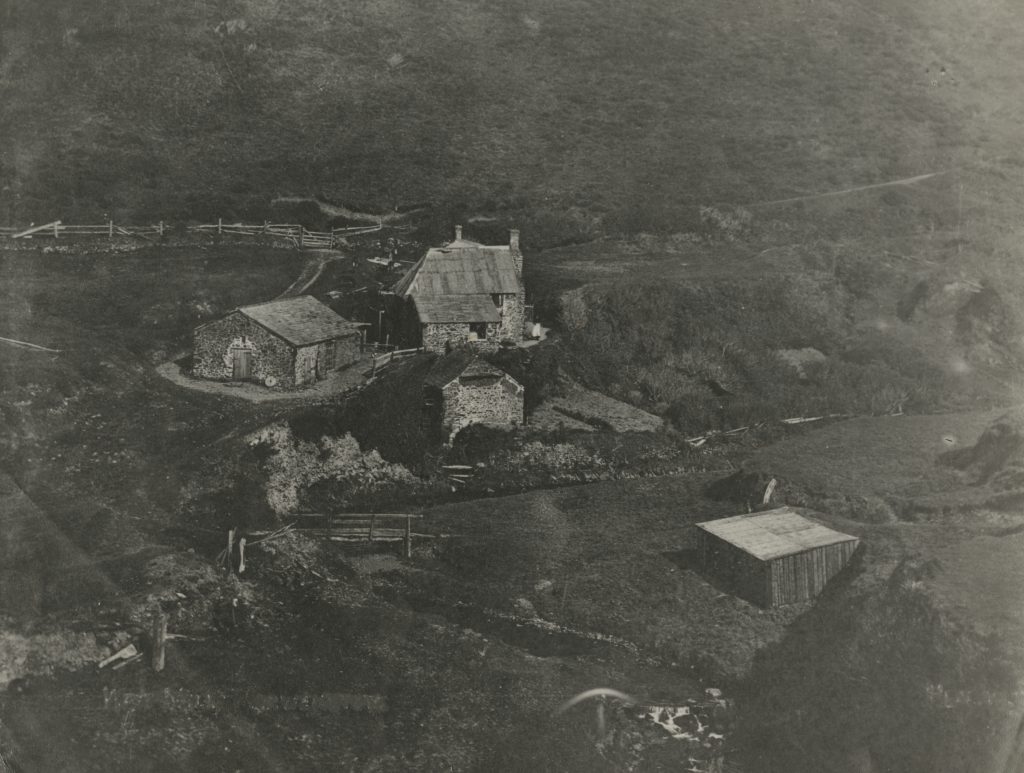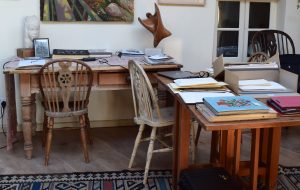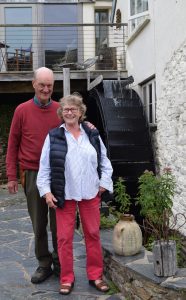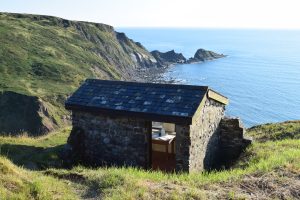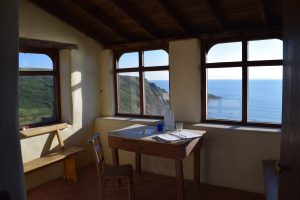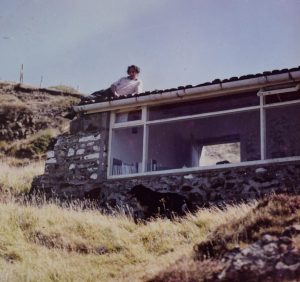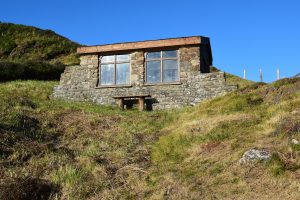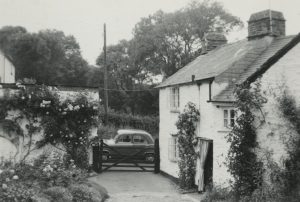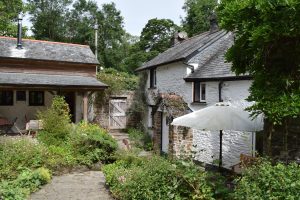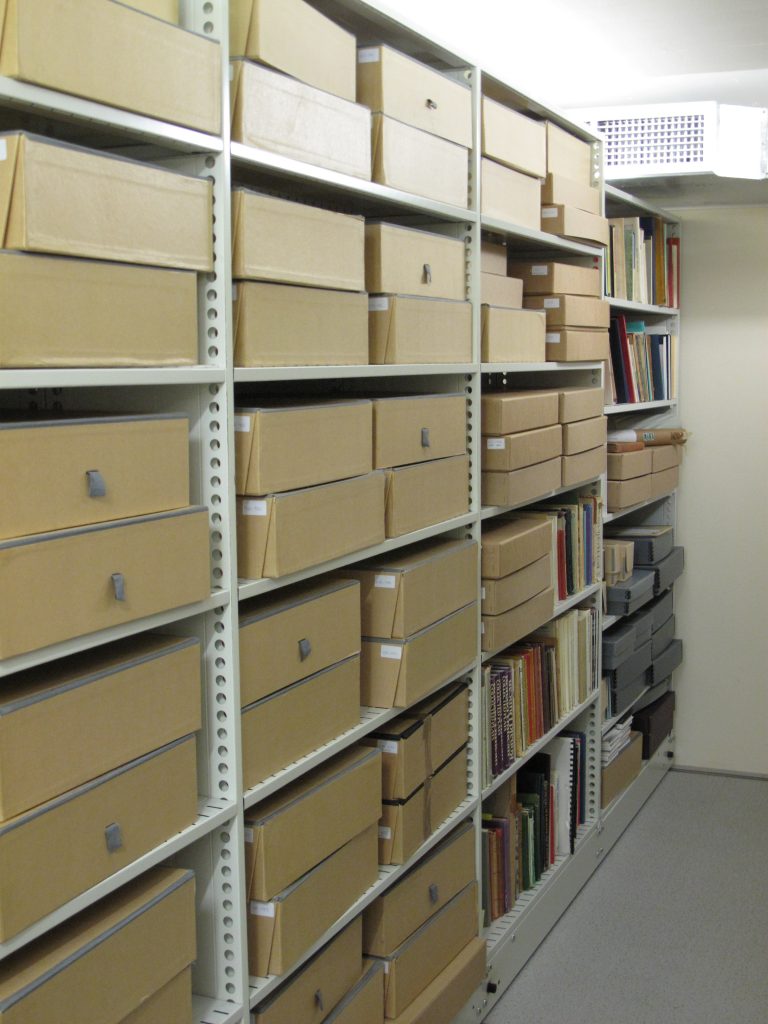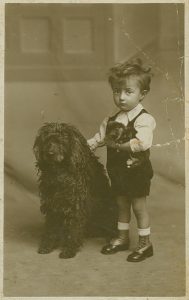We were delighted to be joined last week by Year 12 student Jack for a week of work experience in Special Collections. Below Jack shares some of his impressions and reflections on the experience. We would like to take this opportunity to thank Jack for his excellent work and wish him every success for the future.
I began my work experience week in Special Collections with a tour of the Old Library, which is in some ways quite maze-like, but I found that around every corner there was something interesting to look at or read. I was pleasantly surprised at how huge some of the strongrooms were and the sheer amount of literature that was in each one. I also met some members of the Special Collections team who were all very welcoming and kind. In the afternoon I helped to set up a literary visit for the Exeter U3A (University of the Third Age) and then supervised the event with one of the Archivists, my Supervisor, Annie and one of the Special Collections Team Leaders, Sarah-Jayne. At first I found the event quite daunting as I did not know much about the source material they were showcasing. However, it was inspiring, in a way, to see so many people so enthusiastic about South-West writers and I found it easier to talk with the visitors about some aspects of the literature on display.
On Tuesday, my day began with a tour of the Digital Humanities Lab who work closely with Special Collections. I was able to choose a model to be 3D Printed and even helped take some high quality photos of old Exeter Theatre Royal Playbills. It was interesting seeing the digital side of archiving, which is becoming more extensive as time goes on. In the afternoon I began my cataloguing task (which was introduced to me during my tour of the Old Library on Monday) in which I was typing up the index of Rowland Glave-Saunders’ ‘Book of Reminiscences’. As I went through the index and read some of the sections of his book, I gained quite an understanding of the type of person he was and his views on some subjects. He wrote of Exeter’s experience of the Blitz, evacuees and much more, reading it was almost like time-travelling. I took a break from the cataloguing task to take a look around the Bill Douglas Cinema Museum, which is in the same building as Special Collections.
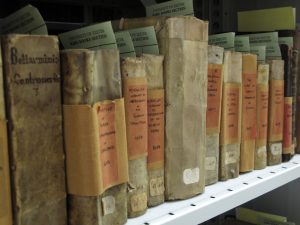
Books in the Syon Abbey Library
I was not able to go to work experience on Wednesday, but on Thursday, the day began with myself and Annie stocktaking in the strongroom. We were taking stock of the Syon Abbey Library, one of several collections on loan. This too was interesting as I noticed how the books changed overtime. In the afternoon I was given an introduction to managing the Reading Room and resumed my cataloguing task, which I was able to finish. I then talked with Annie (as I was able to with various members of the team throughout the entire week) about her role at Special Collections.
On Friday morning, I talked to the other Special Collections Team Leader, Angela, about her role at Special Collections. She introduced me to box listing, which is a way that archivists break down what is in an archive they may receive. I was also able to look through various photos and letters connected to John Lloyd who was a Lecturer and Librarian at the University of Exeter and learnt about himself and some of his relatives through reading the university’s old registers. In the afternoon, I began a second cataloguing task involving letters by the writer Flora Thompson. There were nine letters and it was my task to type short descriptions of them as well as record their date. Even reading the short nine letters, I gained a small insight into the sort of person Flora Thompson was and some of the hardships she experienced. I took a break from this task to learn about the DAME project which stands for the Digital Archive of the Middle East. This involved digitising the Middle East archives held in Special Collections, which consist mostly of 20th Century works including diaries, letters and photos. It was interesting seeing a more modern side to the archives as oppose to the much older Syon Abbey library I had been stocktaking on Thursday. I ended the day by finishing cataloguing Flora Thompson’s letters.
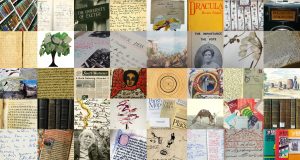
Collage of images from the University of Exeter Special Collections
This work experience has been extremely helpful and insightful. I was given tours and introductions to practically every side of Special Collections as well as the parts of the University that work with them. It has also been amazing knowing that the work I have been doing will actually be contributed towards various projects and archives. During the week, the Special Collections Team have also been extremely welcoming and ready to provide any help, either with the various tasks I have been doing or just finding my way around. The experience has definitely opened up a career which I previously knew very little about and made it one which I may want to pursue.
